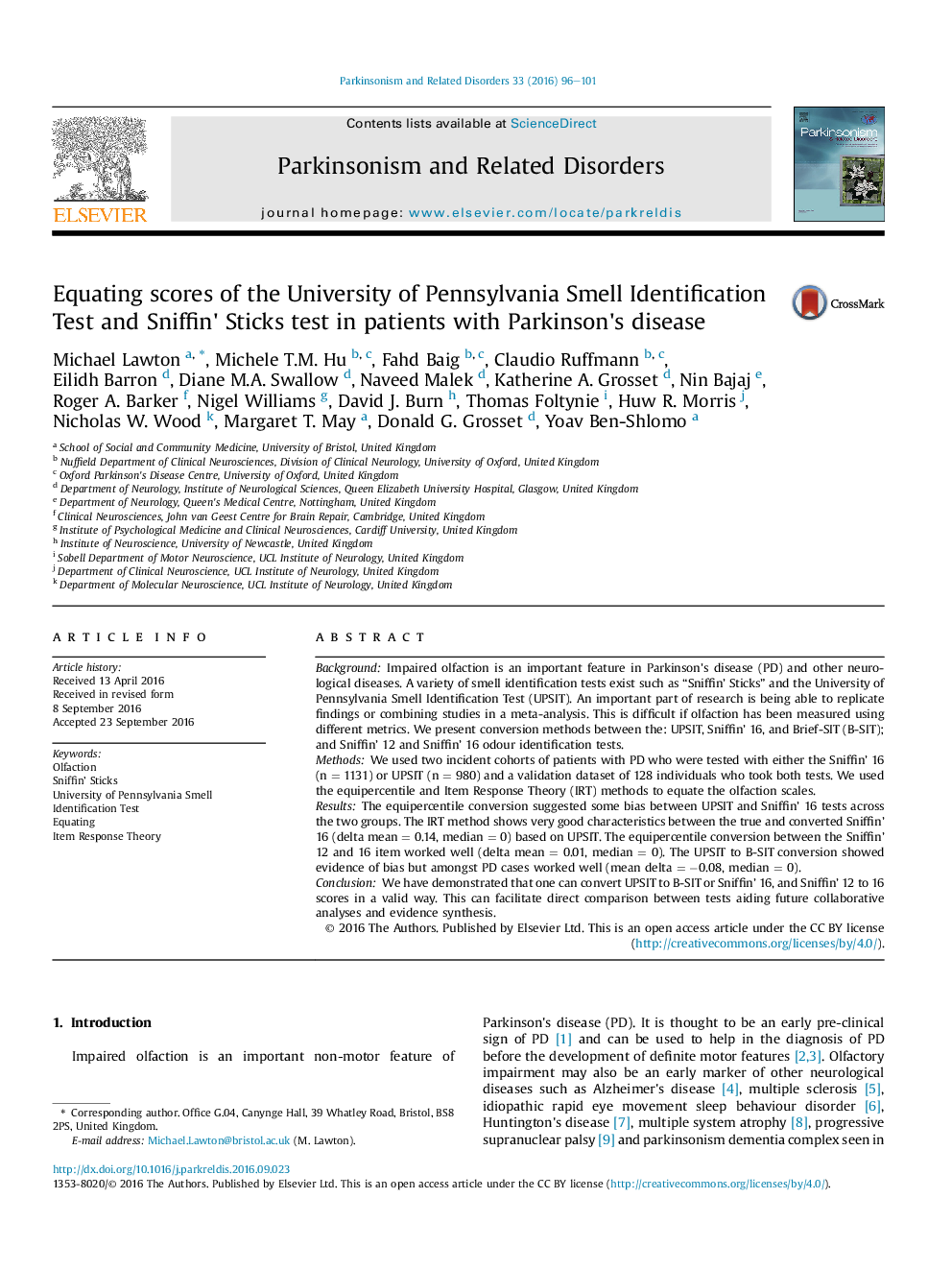| Article ID | Journal | Published Year | Pages | File Type |
|---|---|---|---|---|
| 5504008 | Parkinsonism & Related Disorders | 2016 | 6 Pages |
â¢Need to harmonise olfaction tests (UPSIT and Sniffin' Sticks) for meta-analysis.â¢Use of Item Response Theory and equipercentile methods to convert scores.â¢Validation shows high concordance and little bias between true and converted scores.â¢New age and gender corrected centiles for impaired olfaction from Sniffin' scores.
BackgroundImpaired olfaction is an important feature in Parkinson's disease (PD) and other neurological diseases. A variety of smell identification tests exist such as “Sniffin' Sticks” and the University of Pennsylvania Smell Identification Test (UPSIT). An important part of research is being able to replicate findings or combining studies in a meta-analysis. This is difficult if olfaction has been measured using different metrics. We present conversion methods between the: UPSIT, Sniffin' 16, and Brief-SIT (B-SIT); and Sniffin' 12 and Sniffin' 16 odour identification tests.MethodsWe used two incident cohorts of patients with PD who were tested with either the Sniffin' 16 (n = 1131) or UPSIT (n = 980) and a validation dataset of 128 individuals who took both tests. We used the equipercentile and Item Response Theory (IRT) methods to equate the olfaction scales.ResultsThe equipercentile conversion suggested some bias between UPSIT and Sniffin' 16 tests across the two groups. The IRT method shows very good characteristics between the true and converted Sniffin' 16 (delta mean = 0.14, median = 0) based on UPSIT. The equipercentile conversion between the Sniffin' 12 and 16 item worked well (delta mean = 0.01, median = 0). The UPSIT to B-SIT conversion showed evidence of bias but amongst PD cases worked well (mean delta = â0.08, median = 0).ConclusionWe have demonstrated that one can convert UPSIT to B-SIT or Sniffin' 16, and Sniffin' 12 to 16 scores in a valid way. This can facilitate direct comparison between tests aiding future collaborative analyses and evidence synthesis.
